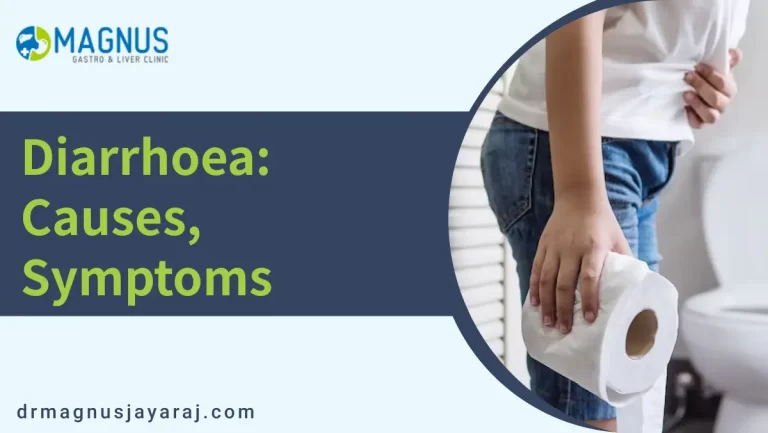Diarrhoea in infants can stem from various causes. Common culprits include viral or bacterial infections, often resulting from contaminated food or water. Intolerance to certain formula or breast milk components, gastrointestinal disorders, or teething can also trigger diarrhoea. Additionally, viral pathogens like rotavirus are prevalent contributors.
Understanding these diverse causes is essential for prompt identification and appropriate management cause of diarrhoea in infants, ensuring timely interventions to prevent dehydration and related complications. Parents should seek medical advice to determine the specific cause and receive guidance on suitable treatments for their infant’s condition.
What is Diarrhoea?
Diarrhoea is a common digestive condition characterized by the frequent passage of loose, watery stools. It occurs when the intestines fail to absorb sufficient water from the stool, leading to an increase in bowel movements and a change in their consistency. Diarrhoea can be caused by various factors, including infections, foodborne illnesses, medications, and underlying medical conditions.
It often results in dehydration due to the loss of fluids and electrolytes. cause of diarrhoea in newborns by various factors, including infections, foodborne illnesses, allergies, and sensitivities to certain foods. Viruses (such as rotavirus), bacteria, and parasites are common infectious causes. Intolerance to formula or new foods, as well as breastfeeding mothers’ diet changes, can contribute
Causes of Diarrhoea in Infants
Diarrhoea in infants can be attributed to various factors, ranging from viral and bacterial infections to dietary issues. One significant cause of diarrhoea in newborns is a sensitivity to formula or breast milk. The immature digestive system of a newborn may struggle to process certain components, leading to gastrointestinal distress and loose stools.
Additionally, infections caused by viruses such as rotavirus or bacteria like Escherichia coli (E. coli) can result in diarrhoea. Maintaining proper hygiene and ensuring a clean environment for infants is crucial in preventing such infections.
Symptoms of Diarrhoea in Newborns
Recognizing the symptoms of diarrhoea in newborns is essential for early intervention. Common indicators include frequent and watery stools, excessive fussiness, and signs of dehydration such as dry mouth and sunken fontanelles (soft spots on the baby’s head). In severe cases, diarrhoea can lead to weight loss and lethargy, emphasizing the need for prompt medical attention. The cause of diarrhoea in infants vary and can include infections, changes in diet, formula intolerance, or breastfeeding issues.
Diagnosing the Cause of Diarrhoea in Infants
When faced with a case of diarrhoea in an infant, healthcare professionals employ various diagnostic methods to identify the root cause. Stool tests are commonly performed to detect the presence of bacteria, viruses, or parasites. Blood tests may also be conducted to assess electrolyte levels and determine the extent of dehydration.
Understanding the cause of diarrhoea is crucial for tailored treatment. For instance, if a bacterial infection is identified, antibiotics may be prescribed.
Treatment and Prevention Strategies for Diarrhoea in Newborns
The cause of diarrhoea in infants can stem from various factors such as infections, viral or bacterial, ingestion of contaminated food or water, and sometimes as a side effect of antibiotics. However, the treatment of diarrhoea in newborns typically involves a combination of medical interventions and supportive care. These solutions help restore the electrolyte balance and prevent dehydration, a common concern in infants with diarrhoea.
In cases of viral infections, such as rotavirus, vaccination plays a crucial role in prevention. It is recommended that infants receive routine vaccinations as part of their immunization schedule to safeguard against potentially severe diarrhoeal illnesses.
Maintaining proper hygiene practices is essential for preventing diarrhoea in newborns. Thorough handwashing before handling the baby, sterilizing feeding equipment and ensuring a clean environment can significantly reduce the risk of infections.
Conclusion
Understanding the causes, symptoms, and treatment options for diarrhoea in infants is vital for parents, caregivers, and healthcare professionals alike. The cause of diarrhoea in infants can vary, including viral or bacterial infections, food allergies, or intolerance. Prompt recognition of symptoms, such as frequent loose stools, dehydration signs, and irritability, is crucial. Seeking timely medical attention ensures proper diagnosis and intervention, making a significant difference in the outcome for the baby.

